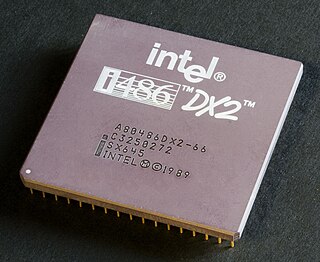Related Research Articles

Arabic is a Semitic language that first emerged in the 1st to 4th centuries CE. It is the lingua franca of the Arab world and the liturgical language of Islam. It is named after the Arabs, a term initially used to describe peoples living in the Arabian Peninsula bounded by eastern Egypt in the west, Mesopotamia in the east, and the Anti-Lebanon mountains and northern Syria in the north, as perceived by ancient Greek geographers. The ISO assigns language codes to 32 varieties of Arabic, including its standard form, Modern Standard Arabic, also referred to as Literary Arabic, which is modernized Classical Arabic. This distinction exists primarily among Western linguists; Arabic speakers themselves generally do not distinguish between Modern Standard Arabic and Classical Arabic, but rather refer to both as al-ʿarabiyyatu l-fuṣḥā or simply al-fuṣḥā (اَلْفُصْحَىٰ).

Birds are a group of warm-blooded vertebrates constituting the class Aves, characterised by feathers, toothless beaked jaws, the laying of hard-shelled eggs, a high metabolic rate, a four-chambered heart, and a strong yet lightweight skeleton. Birds live worldwide and range in size from the 5.5 cm (2.2 in) bee hummingbird to the 2.8 m ostrich. There are about ten thousand living species, more than half of which are passerine, or "perching" birds. Birds have wings whose development varies according to species; the only known groups without wings are the extinct moa and elephant birds. Wings, which evolved from forelimbs, gave birds the ability to fly, although further evolution has led to the loss of flight in some birds, including ratites, penguins, and diverse endemic island species. The digestive and respiratory systems of birds are also uniquely adapted for flight. Some bird species of aquatic environments, particularly seabirds and some waterbirds, have further evolved for swimming.

A central processing unit (CPU), also called a central processor, main processor or just processor, is the electronic circuitry that executes instructions comprising a computer program. The CPU performs basic arithmetic, logic, controlling, and input/output (I/O) operations specified by the instructions in the program. This contrasts with external components such as main memory and I/O circuitry, and specialized processors such as graphics processing units (GPUs).

C is a general-purpose computer programming language. It was created in the 1970s and remains very widely used and influential. By design, C provides constructs that map efficiently to typical machine instructions. It has found lasting use in operating systems, device drivers, protocol stacks, though decreasingly for application software, and is common in computer architectures that range from the largest supercomputers to the smallest microcontrollers and embedded systems.

Grigori Yefimovich Rasputin was a Russian mystic and self-proclaimed holy man who befriended the family of Nicholas II, the last Emperor of Russia, and gained considerable influence in late Imperial Russia.

Human sexual activity, human sexual practice or human sexual behaviour is the manner in which humans experience and express their sexuality. People engage in a variety of sexual acts, ranging from activities done alone to acts with another person in varying patterns of frequency, for a wide variety of reasons. Sexual activity usually results in sexual arousal and physiological changes in the aroused person, some of which are pronounced while others are more subtle. Sexual activity may also include conduct and activities which are intended to arouse the sexual interest of another or enhance the sex life of another, such as strategies to find or attract partners, or personal interactions between individuals. Sexual activity may follow sexual arousal.

Mathematics is an area of knowledge, which includes the study of such topics as numbers, formulas and related structures (algebra), shapes and spaces in which they are contained (geometry), and quantities and their changes. There is no general consensus about its exact scope or epistemological status.

Mammals are a group of vertebrates constituting the class Mammalia, characterized by the presence of mammary glands which in females produce milk for feeding (nursing) their young, a neocortex, fur or hair, and three middle ear bones. These characteristics distinguish them from reptiles from which they diverged in the Carboniferous, over 300 million years ago. Around 6,400 extant species of mammals have been described. The largest orders are the rodents, bats and Eulipotyphla. The next three are the Primates, the Artiodactyla, and the Carnivora.

Music is the art of arranging sounds in time through the elements of melody, harmony, rhythm, and timbre. It is one of the universal cultural aspects of all human societies. General definitions of music include common elements such as pitch, rhythm, dynamics, and the sonic qualities of timbre and texture. Different styles or types of music may emphasize, de-emphasize or omit some of these elements. Music is performed with a vast range of instruments and vocal techniques ranging from singing to rapping; there are solely instrumental pieces, solely vocal pieces and pieces that combine singing and instruments. The word derives from Greek μουσική.

A regular expression is a sequence of characters that specifies a search pattern in text. Usually such patterns are used by string-searching algorithms for "find" or "find and replace" operations on strings, or for input validation. It is a technique developed in theoretical computer science and formal language theory.

Sex is the trait that determines whether a sexually reproducing animal or plant produces male gametes or female ones. Commonly in plants and animals, male organisms produce smaller gametes while female organisms produce larger gametes. Organisms that produce both types of gametes are called hermaphrodites. During sexual reproduction, male and female gametes fuse to form zygotes that develop into offspring that inherit a selection of the traits of each parent.

A wiki is a hypertext publication collaboratively edited and managed by its own audience directly. A typical wiki contains multiple pages for the subjects or scope of the project and could be either open to the public or limited to use within an organization for maintaining its internal knowledge base.

LGBT is an initialism that stands for lesbian, gay, bisexual, and transgender. In use since the 1990s, the initialism, as well as some of its common variants, functions as an umbrella term for sexuality and gender identity.

In some cultures, a surname, family name, or last name is the portion of one's personal name that indicates one's family, tribe or community.
A multiplayer video game is a video game in which more than one person can play in the same game environment at the same time, either locally and on the same computing system, locally and on different computing systems via a local area network, or via a wide area network, most commonly the Internet. Multiplayer games usually require players to share a single game system or use networking technology to play together over a greater distance; players may compete against one or more human contestants, work cooperatively with a human partner to achieve a common goal, or supervise other players' activity. Due to multiplayer games allowing players to interact with other individuals, they provide an element of social communication absent from single-player games.

In monotheistic thought, God is usually conceived of as the supreme being, creator, and principal object of faith. God is usually conceived of as being omnipotent, omniscient, omnipresent and omnibenevolent as well as having an eternal and necessary existence. God is most often held to be incorporeal, with said characteristic being related to conceptions of transcendence or immanence.

A computer is a digital electronic machine that can be programmed to carry out sequences of arithmetic or logical operations (computation) automatically. Modern computers can perform generic sets of operations known as programs. These programs enable computers to perform a wide range of tasks. A computer system is a "complete" computer that includes the hardware, operating system, and peripheral equipment needed and used for "full" operation. This term may also refer to a group of computers that are linked and function together, such as a computer network or computer cluster.
Proprietary software, also known as non-free software or closed-source software, is computer software for which the software's publisher or another person reserves some licensing rights to use, modify, share modifications, or share the software, restricting user freedom with the software they lease. It is the opposite of open-source or free software. Non-free software sometimes includes patent rights.

A continent is any of several large landmasses. Generally identified by convention rather than any strict criteria, up to seven geographical regions are commonly regarded as continents. Ordered from largest in area to smallest, these seven regions are: Asia, Africa, North America, South America, Antarctica, Europe, and Australia. Variations with fewer continents may merge some of these, for example some systems include Afro-Eurasia, America or Eurasia as single continents. Zealandia, a largely submerged mass of continental crust, has also been described as a continent.

Rama Navami is a North Indian spring festival that celebrates the birthday of Rama, the seventh avatar of the god Vishnu. Rama is particularly important in the Vaishnava tradition of Hinduism. The festival celebrates the descent of Vishnu as the Rama avatar, through his birth to King Dasharatha and Queen Kausalya in Ayodhya, Kosala. The festival is a part of the Chaitra Navaratri in the spring, and falls on the ninth day of the bright half of Chaitra, the first month in the Hindu calendar. This typically occurs in the Gregorian months of March or April every year. Rama Navami is an optional government holiday in India.
References
- ↑ Wright, W. H. K., ed. (1889). Some Account of the Barony and Town of Okehampton. Tiverton: William Masland. p. 147.
